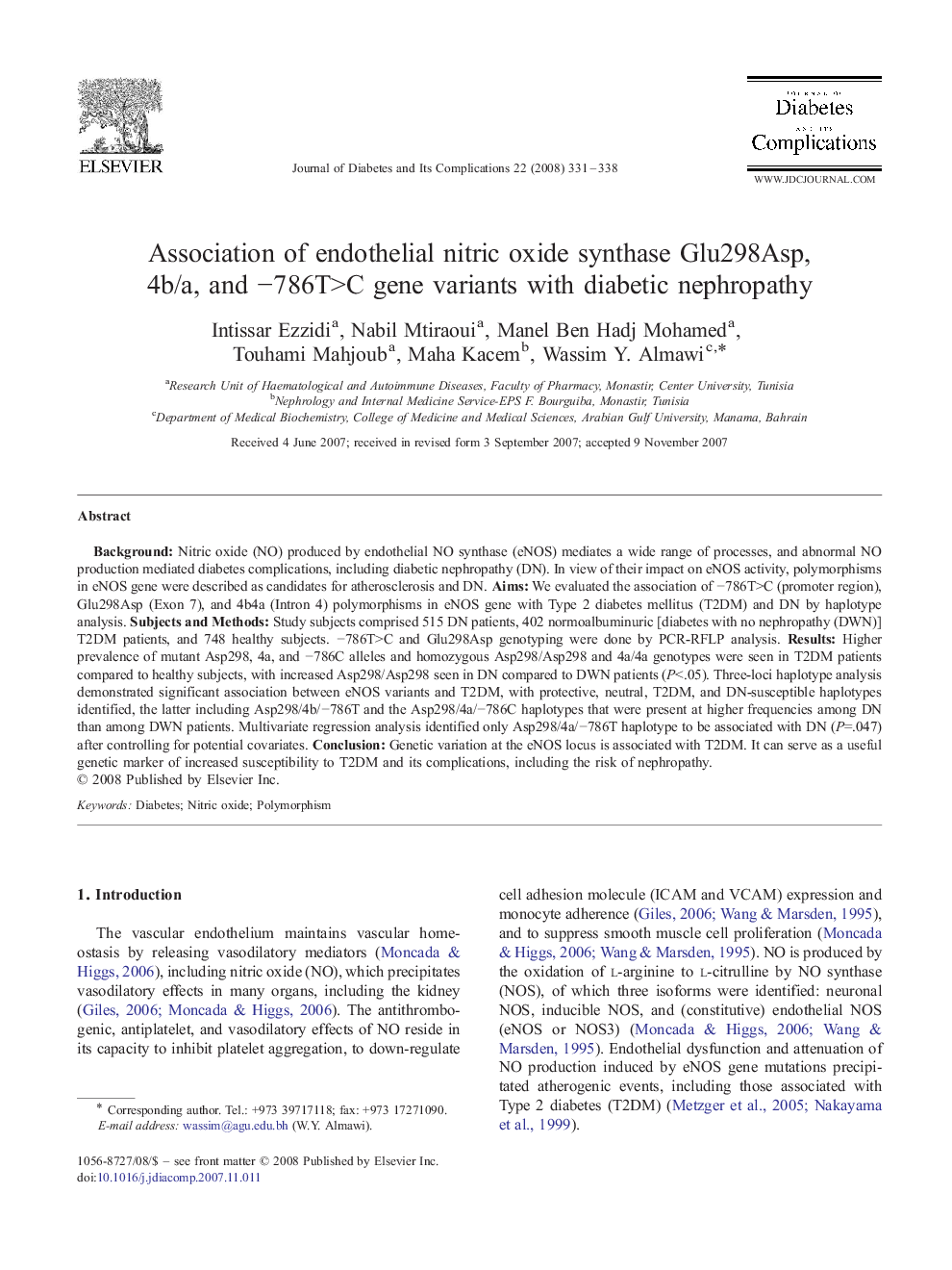| Article ID | Journal | Published Year | Pages | File Type |
|---|---|---|---|---|
| 2804708 | Journal of Diabetes and its Complications | 2008 | 8 Pages |
BackgroundNitric oxide (NO) produced by endothelial NO synthase (eNOS) mediates a wide range of processes, and abnormal NO production mediated diabetes complications, including diabetic nephropathy (DN). In view of their impact on eNOS activity, polymorphisms in eNOS gene were described as candidates for atherosclerosis and DN.AimsWe evaluated the association of −786T>C (promoter region), Glu298Asp (Exon 7), and 4b4a (Intron 4) polymorphisms in eNOS gene with Type 2 diabetes mellitus (T2DM) and DN by haplotype analysis.Subjects and MethodsStudy subjects comprised 515 DN patients, 402 normoalbuminuric [diabetes with no nephropathy (DWN)] T2DM patients, and 748 healthy subjects. −786T>C and Glu298Asp genotyping were done by PCR-RFLP analysis.ResultsHigher prevalence of mutant Asp298, 4a, and −786C alleles and homozygous Asp298/Asp298 and 4a/4a genotypes were seen in T2DM patients compared to healthy subjects, with increased Asp298/Asp298 seen in DN compared to DWN patients (P<.05). Three-loci haplotype analysis demonstrated significant association between eNOS variants and T2DM, with protective, neutral, T2DM, and DN-susceptible haplotypes identified, the latter including Asp298/4b/−786T and the Asp298/4a/−786C haplotypes that were present at higher frequencies among DN than among DWN patients. Multivariate regression analysis identified only Asp298/4a/−786T haplotype to be associated with DN (P=.047) after controlling for potential covariates.ConclusionGenetic variation at the eNOS locus is associated with T2DM. It can serve as a useful genetic marker of increased susceptibility to T2DM and its complications, including the risk of nephropathy.
